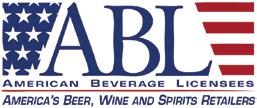
3 minute read
Accounting on Tap
PAYCHECK PROTECTION PROGRAM LOAN FORGIVENESS
BY DAN BERGS, CPA
Paycheck Protection Program (PPP) loans have been one of the hottest topics for small businesses over recent months. There have been many changes to the legislation and, since this article was written in mid-August, there could very well be changes to the rules before the article is even published. It is noteworthy, however, that the changes made to the loan program have become more favorable to businesses.
These PPP loans were issued to small businesses to help alleviate the significant economic impacts of COVID-19. They were designed to help cover a couple months of payroll and facility costs, including employee wages, health/dental/vision insurance, employer retirement plan contributions, state unemployment tax, utilities, rent and interest on mortgage obligations.
Recipients of these loans now have 24 weeks to spend the funds they receive. Initially, it was eight weeks, but that was expanded in early June. Most recipients spent their loan funds in less than the 24-week period and are approaching the time to complete the forgiveness application. Many advisors are currently recommending on waiting to see if Congress allows automatic forgiveness for loans under a certain dollar amount ($150,000, for example). There is nothing passed as of midAugust, but pay close attention to this as it could save you paperwork down the road when submitting the forgiveness application.
Here are some other recommendations and considerations for the PPP loan forgiveness applications:
1. If you have used all of the loan funds on qualifying wages for payroll, then it may be easier to just use payroll wages when submitting the application, while skipping other qualifying expenses that may require more work to obtain, like utilities, mortgage interest or rent, for instance.
2. The paperwork submitted for forgiveness needs to be retained for a period of six years. As a best practice, businesses should save this in their permanent business files and can request their advisors to save it in their client files as well.
3. Communication with your banker is key to making sure you have an understanding of the bank’s process for loan forgiveness applications. 4. If you have reduced your employees’ hourly pay rate or salary rate by over 25%, the full loan may not be forgiven.
If you have paid employees $20 per hour and reduced pay to $10 per hour, for example, you’re likely going to have limitations on your loan forgiveness.
5. If your employee headcount has been reduced, then you may also have a limitation on the amount of loan forgiveness. This rule has changed a lot, so make sure to contact your advisors when preparing the loan forgiveness application. Some exceptions to the reduction include: reductions related to an employee who rejected a good-faith, written offer to rehire; reductions related to an employee who was fired for cause, voluntarily resigned, or voluntarily requested and received a reduction in hours; and reductions made between Feb. 15 and
April 26, 2020 that were reversed by Dec. 31, 2020.
6. Your loan forgiveness amount cannot be reduced based on headcount reductions if your business was unable to operate between Feb. 15, 2020 and the end of your loan forgiveness covered period at the same level as before Feb. 1, 2020 due to compliance with certain federal requirements or guidance issued between March 1 and Dec. 31, 2020 related to maintaining standards of sanitation, social distancing, or other work or customer safety requirements related to COVID-19.
These PPP loans have helped keep many businesses afloat during the pandemic. Pay attention to future legislation that may ease the burden on submitting forgiveness applications. Best of luck to all the businesses navigating through these challenging times. TLW
Dan Bergs, CPA, is a supervisor in the tax and business services department with Wegner CPAs LLP. The firm has offices in Madison, Baraboo, Waukesha and Janesville. This article is not intended to give complete tax advice, but a general review of subject matter. For more information, please contact Bergs at (608) 442-1986 or dan.bergs@wegnercpas.com.







